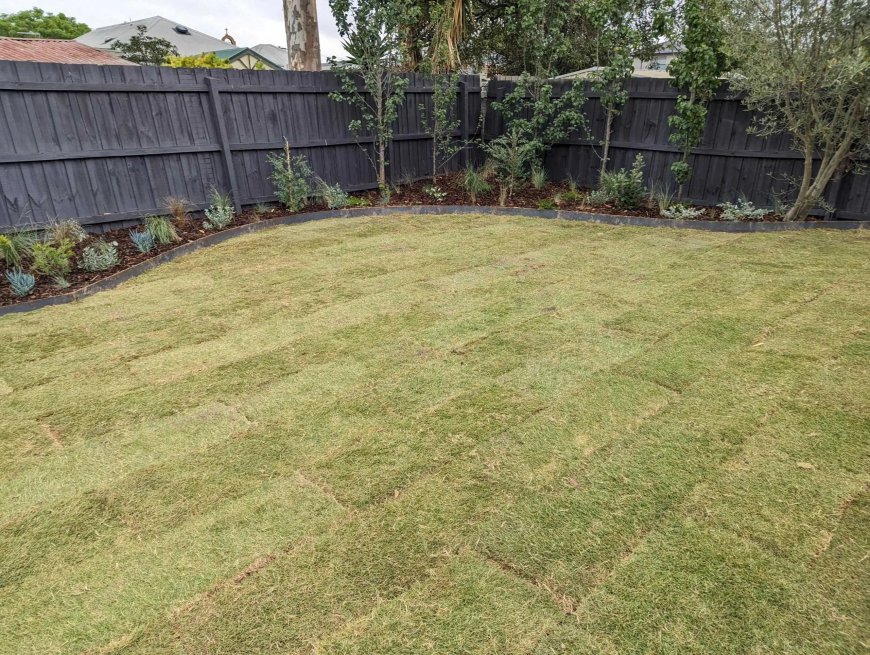Top Eco-Friendly Landscaping Ideas to Reduce Waste, Water, and Costs
Learn how sustainable landscaping practices in Melbourne can enhance your garden’s aesthetics, promote water conservation, reduce waste, and lower costs. From choosing native plants and xeriscaping to rain gardens and smart irrigation, discover eco-friendly ideas that benefit the environment and your budget.

As environmental awareness grows, more homeowners and businesses are turning towards sustainable landscaping practices that not only enhance outdoor aesthetics but also promote water conservation, waste reduction, and cost savings. In a place like Melbourne, where unique climate conditions prevail, adopting eco-conscious landscaping methods can create a thriving garden that benefits both the planet and your budget. Here are some of the top eco-friendly landscaping ideas that can help you achieve this balance.
Embrace Native Plants
Opting for native plants is one of the most impactful changes you can make for a greener landscape. Since these plants are naturally suited to the local environment, they require less water and maintenance compared to non-native varieties. By incorporating them, you're not just cultivating a garden that thrives with minimal input but also creating habitats for local wildlife like birds and butterflies.
Why Choose Native? Drought-resistant and hardier by nature, native plants cut down on the need for excessive watering, fertilisers, and pesticides. This reduces chemical runoff, helping to protect nearby water sources.
Water-Smart Xeriscaping
Xeriscaping is an increasingly popular landscaping technique that prioritises water efficiency. Perfect for Melbourne's unpredictable climate, this method utilises drought-tolerant plants and strategic irrigation to minimise water consumption.
How to Implement: Use mulch or gravel to lock in soil moisture, and group plants with similar water requirements together. Drip irrigation systems are ideal for Xeriscaping, as they deliver water directly to the roots where it’s needed most, reducing wastage through evaporation.
Create a Rain Garden
Rain gardens are specifically designed to capture and filter rainwater runoff from hard surfaces like roofs and driveways. By constructing a shallow depression and filling it with native plants, you can mitigate stormwater pollution while creating an attractive focal point in your garden.
Added Bonus: Rain gardens help manage water naturally, reducing the risk of localised flooding and erosion, all while supporting local wildlife and enhancing your outdoor space.
Composting for Healthier Soil
Composting offers a practical way to reduce organic waste while enriching the soil in your garden. Converting kitchen scraps and garden waste into nutrient-dense compost can significantly improve soil health without the need for chemical fertilisers.
How to Begin: Set up a backyard compost bin or try a worm bin if space is tight. Regularly turning the compost keeps it aerated and speeds up the decomposition process, ensuring you’ll have rich compost for your garden in no time.
Go Permeable with Your Paving
Traditional driveways and walkways can lead to water runoff and erosion, but permeable paving options allow rainwater to seep through and replenish groundwater levels. This helps to minimise erosion and reduce pressure on stormwater systems.
Paving Alternatives: Consider using materials like permeable pavers, gravel, or porous asphalt. These eco-friendly solutions offer both functionality and visual appeal.
Integrate Edible Landscaping
Why not grow something you can enjoy? Edible landscaping lets you mix practical food production with traditional garden design. Plant fruit trees, vegetables, or herb gardens alongside ornamental plants to create a landscape that feeds both you and the environment.
Advantages: Reducing your reliance on store-bought produce lowers your carbon footprint, and you'll have the added satisfaction of fresh, home-grown food.
Mulching for Efficiency
Mulching is a simple yet effective way to conserve water and reduce the need for weeding. By covering the soil with organic mulch—such as wood chips or straw—you not only suppress weed growth but also help the soil retain moisture and maintain a consistent temperature.
Cost-Saving: Mulch breaks down naturally over time, adding nutrients back into the soil, cutting down on fertiliser use, and reducing the time spent on garden maintenance.
Explore Lawn Alternatives
Traditional lawns can be water-intensive and require ongoing maintenance. If you're looking for a low-maintenance, eco-friendly solution, consider ground covers, clover lawns, or native grasses. These alternatives are more resilient and typically require less water and upkeep.
Eco Benefit: Lawn alternatives support biodiversity and can provide habitats for beneficial insects, contributing to a healthier ecosystem.
Invest in Smart Irrigation
Optimising water use is key to sustainable landscaping, and smart irrigation systems make this easier than ever. These systems automatically adjust watering schedules based on weather conditions, ensuring your garden gets the right amount of water without wasting a drop.
Features to Look For: Some systems come equipped with moisture sensors or timers and can be remotely managed via smartphone apps, giving you full control of your garden’s watering needs.
Professional Help for Sustainable Landscapes
If you're not sure where to start, it’s worth considering the expertise of professional landscapers. In Melbourne, firms like Made by Mobbs specialise in sustainable landscaping service in Melbourne. They can help design and implement eco-friendly practices tailored to your specific needs and site conditions, ensuring a beautiful, functional, and environmentally conscious garden.
Why Choose Experts?
Professional landscapers have in-depth knowledge of local conditions and regulations, helping you create a landscape that’s both visually appealing and sustainable.
Incorporating these eco-friendly landscaping practices into your outdoor space can not only enhance its beauty but also play a part in conserving natural resources and reducing costs. Whether it’s through the use of native plants, water-efficient xeriscaping, rain gardens, or sustainable lawn alternatives, your efforts will benefit both the environment and your wallet.
For expert advice and assistance in creating an eco-friendly landscape, reach out to Made by Mobbs today. Their experienced Landscape designers Melbourne team can help you design a garden that balances sustainability with stunning design, ensuring your outdoor space thrives while being kind to the planet.

 Made By Mobbs
Made By Mobbs